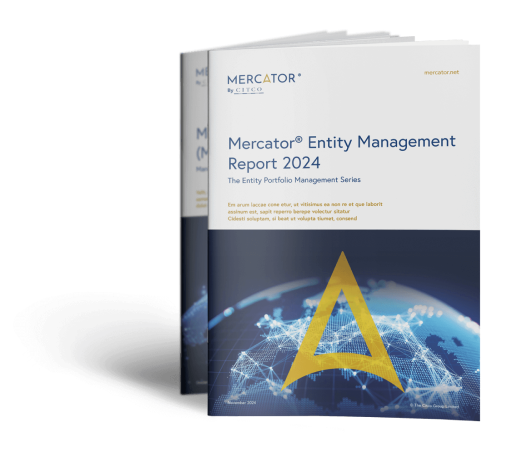The information contained in this document is marketing material and for informational purposes only. The information contained in this document is presented without any warranty or representation as to its accuracy or completeness and all implied representations or warranties of any kind are hereby disclaimed. Recipients of this document, whether clients or otherwise, should not act or refrain from acting on the basis of any information included in this document without seeking appropriate professional advice. The provision of the information contained in this document does not establish any express or implied duty or obligation between Citco and any recipient and neither Citco nor any of its shareholders, members, directors, principals or personnel shall be responsible or liable for results arising from the use or reliance of the information contained in this document including, without limitation, any loss (whether direct, indirect, in contract, tort or otherwise) arising from any decision made or action taken by any party in reliance upon the information contained in this document. © The Citco Group Limited, December 2024.
Netherlands – New Financial Statement Filing Requirements for Large Companies
The Netherlands is modernizing its financial reporting landscape for large companies, with significant changes being introduced for the financial year 2025.
An amendment has been made to the Decree on electronic filing business register (‘Besluit elektronische deponering handelsregister’) introducing new requirements for financial statements preparation and filing for large companies.
This change aims to boost transparency and efficiency in Netherlands corporate financial reporting, aligning with global digital reporting trends.
Key Changes
1. XBRL Format Mandatory for Large Companies
Starting from financial year 2025 (effective the 1st of January 2026), large companies must file financial statements in XBRL format using Standard Business Reporting (SBR) via financial software.
2. Elimination of Post and Email Filings
Large companies will no longer be able to file via post or email from FY 2025.
3. Continued Requirements for Other Business Sizes
- Medium-sized businesses: Continue filing in XBRL format via SBR
- Micro and small-sized businesses: Two options remain a) XBRL format via SBR b) Online Self-Depository of Annual Accounts tool
Classification of ‘Large Companies’
In the Netherlands, the classification of companies into size categories is based on specific criteria defined in the Dutch Civil Code. A company is considered “large” if it meets at least two of the following three criteria for two consecutive years:
1. Total assets exceed €20 million
2. Net turnover exceeds €40 million
3. Average number of employees is 250 or more
It’s important to note that these thresholds can be subject to change, so it’s always advisable to check the most current regulations or consult with a local expert for the most up-to-date information.
The Risks of Non-Compliance
- Financial Penalties
Failure to submit financial statements on time can result in fines of up €21,750 - Director Liability
Directors can also become personally liable for debt in case the company is declared bankrupt, even if the legal structure of the business would normally prevent this.
These changes underscore the importance of adapting to digital reporting standards. Companies should assess their current processes and implement necessary changes to ensure compliance with the new requirements.
Contact us for expert guidance and support on navigating these new filing regulations.

